The Saturday Evening Podcast No. 1: The Rise of Women in Politics
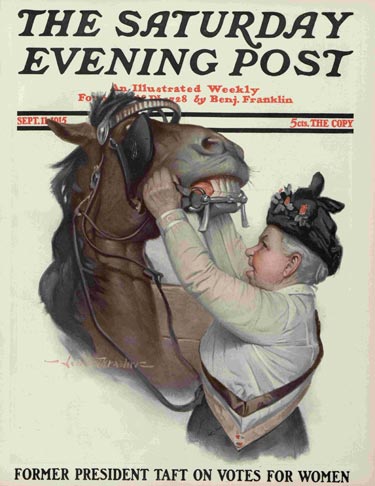
Regardless of who wins, the 2016 presidential election has broken new ground in American history. For the first time ever, a major political party nominated a woman, Hillary Rodham Clinton, as its presidential candidate. Seeing a woman’s name on the ballot has been a long time coming, and in this podcast, Jeff Nilsson and Andy Hollandbeck talk about just how long it’s been and how we finally got here.
In this podcast, Jeff interviews Nancy L. Cohen, author of Breakthrough: The Making of America’s First Woman President. You’ll also hear the words of President William Howard Taft; Susan B. Anthony II, grandniece of the famed feminist and suffragist; Margaret Chase Smith, who in 1964 campaigned for the Republican Party’s presidential nomination; Shirley Chisholm, who campaigned for the presidency in 1972; and current U.S. Representative Marsha Blackburn of Tennessee.
Listen to the podcast on SoundCloud.
The following supplementary materials can help you dig into the information we talk about in the podcast.
The World Bank website allows you to sort and visualize (as well as download) the Inter-Parliamentary Union’s data on the “proportion of seats held by women in national parliaments” in a number of ways.
From the Fourth Estate, this “Female Voices in Media” infographic shows a surprising gender gap in who was quoted in stories about women’s issues during the 2012 election.
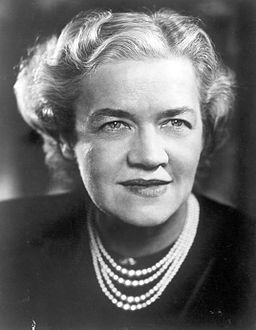
Margaret Chase Smith was the first woman to serve in both houses of Congress. She represented Maine in the House of Representatives from 1940 to 1949 and in the Senate from 1949 to 1973. In 1964, she ran against Barry Goldwater for the Republican Party’s presidential nomination. Goldwater won but was defeated in a landslide by democrat Lyndon B. Johnson in the general election. One wonders what the electoral count would have looked like if Smith had been the party’s candidate.
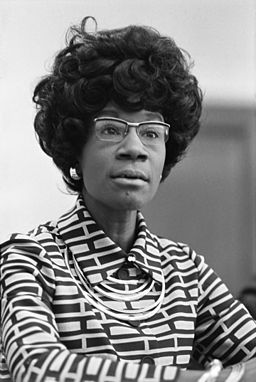
New York’s Shirley Chisholm was the first African-American woman elected to Congress, serving in the House of Representatives from 1969 to 1983. In 1972, she became the first African American to run for the presidential nomination in a major political party. The Democratic Party instead chose George McGovern, who was soundly defeat in the general election by Richard Nixon. In 2015, Chisholm was posthumously award the Presidential Medal of Freedom.
In 1948, the grandniece of Susan B. Anthony looked back at what women had accomplished politically since women’s suffrage had passed, She was not impressed. She wrote “We Women Throw Our Votes Away” for the post that year.
Google’s NGram viewer shows that the phrase “gender role” was practically nonexistence before 1956. Throughout the ’60s, the phrase become much more common in print.
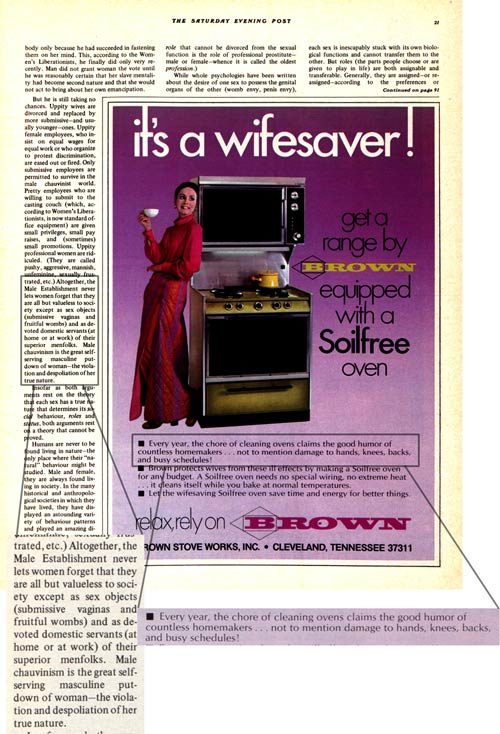
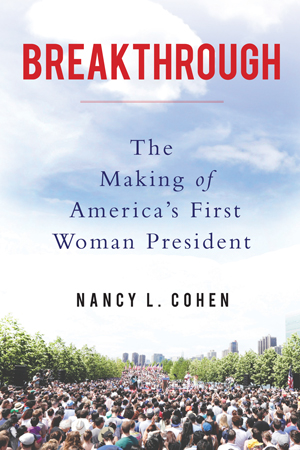
By Nancy L. Cohen
Nancy L. Cohen’s book, Breakthrough: The Making of America’s First Woman President, draws from hundreds of hours of interviews with women governors, Senators, experts, operatives, and a diverse array of voters to explore why women’s leadership matters and how the history of women’s rights activism culminated in the nomination of Hillary Rodham Clinton for president of the United States.
Sound files heard in the podcast:
- “Hail to the Chief” played by the U.S. Army Ceremonial Band
- “Respect” by Aretha Franklin, 1967
- “Woman in the White House” by Sheryl Crow, 2012
- “Margaret Chase Smith” at the Women’s National Press Club, January 27, 1964
- Katie Couric interviews Rep. Marsha Blackburn, May 19, 2014
- “Hail to the Chief” performed by the Mormon Tabernacle Choir, 1973
If you enjoyed this podcast, you might also like:
Susan B. Anthony, Illegal Voter
Against Her Self-Interest: An Anti-Suffragist Admits Her Mistake
